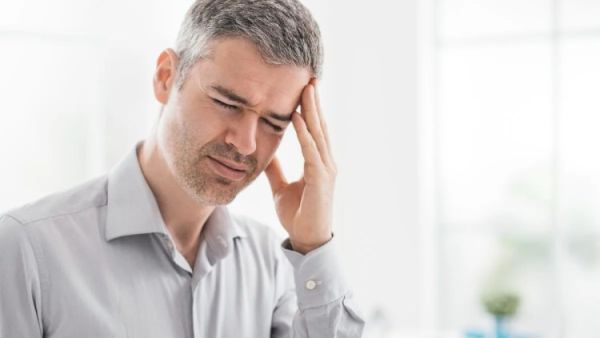
Type of Headache and Its Cause: People are always rushing about in today’s fast-paced society. Their health may suffer as a result, and headaches—the most prevalent problem—may result. People often get headaches when they are attempting to handle demanding deadlines, back-to-back meetings, and never-ending conflicts between their personal and professional lives on their own.

Around the globe, headaches are becoming a prevalent medical problem. Not all headaches are the same, ranging from sinus to migraine. Every form of headache has a distinct underlying reason, whether you’re suffering from a severe migraine, a dull, ongoing aching of tension, or sinus pressure.
The two main categories of headaches are primary and secondary. Although headaches are often sporadic and benign, each kind of headache may indicate a more serious problem, such as stress, allergies, hormone imbalances, or even neurological disorders. For effective therapy, it’s critical to comprehend the underlying causes of each kind of headache. Therefore, the first step to long-term well-being and efficient headache treatment is knowing the kind of headache and its origin. These are some typical kinds of headaches along with their causes.
Types of Headaches and Their Causes
Headache from a migraine
This is the most prevalent kind of headache that individuals worldwide encounter. If left untreated, these severe, throbbing feelings, which usually affect one side of the brain, may continue anywhere from four to seventy-two hours. Hormonal fluctuations, missing meals, sleep deprivation, alcohol use, odors, and sunshine are often the causes of them. Light and sound sensitivity, nausea, and vomiting may all accompany a migraine headache.
Headache in the Sinus
This headache, which causes a deep, ongoing discomfort or pressure in the forehead, cheekbones, and bridge of the nose, is often associated with sinus infections, allergies, or colds. A sinus headache may exacerbate with abrupt head movements or effort and can result in nasal congestion, fever, or post-nasal drip.
Headache of the Tension Type
Another typical kind of headache that resembles a tight ring around your forehead is this one. Stress, bad posture, dehydration, alcohol, or even missing meals may all contribute to this headache. Frequent tension headaches may indicate persistent stress or bad lifestyle behaviors that need attention, even when they are not medically severe.
Headaches in Clusters
Due to its severity, this uncommon headache is sometimes referred to as a “suicidal headache.” It typically affects one eye and produces severe agony. As the name implies, cluster headaches happen in cycles or clusters and might be accompanied by nasal congestion, tears, or redness. It is often thought to be connected to anomalies in the hypothalamus, the area of the brain that controls the human biological clock.
Headache Associated with Hormones
This headache, which happens during pregnancy or menopause, is brought on by estrogen levels, particularly before to menstruation. Hormonal fluctuations affect neurotransmitters in the brain, causing pain in those who are vulnerable. It’s crucial to speak with a medical professional who can assist people in managing their headaches.
Headache from a thunderclap
This form of headache, as its name implies, comes on quickly and peaks in severity in around 60 seconds. Thunderclap headaches, often referred to as the “worst headache of one’s life,” might indicate major underlying conditions such as meningitis or a torn blood vessel. Since it may be life-threatening, immediate medical attention is necessary.
Headaches that are cervicogenic
This headache is brought on by neck problems such injuries, bad posture, or degeneration of the cervical spine. Usually, the discomfort starts in the neck and spreads to the head. Chiropractic adjustments, physical therapy, and ergonomic adjustments may all help manage this headache.
Headache from Medication Overuse
This condition, often referred to as rebound headache, happens when patients use painkillers too frequently. Overuse of drugs may eventually exacerbate headaches by overstimulating the brain. This reason needs to be properly managed and reexamined.
How to Treat a Headache
Even while medications may stop headaches, it’s also crucial to get adequate sleep, eat a healthy diet, avoid screens too much, practice relaxation methods, and drink enough of water. In addition, headaches may be relieved by taking a hot bath or by repeatedly placing a heating pad around the head for five to ten minutes.
-
‘Run did not score after a century, Ajit Agarkar told the reason for Sarfaraz Khan not being selected

-
Ajit Agarkar reveals the reason behind giving Test vice-captaincy to Rishabh Pant

-
Is the name spelled wrong on the Aadhaar card? This is how you will have to take an offline appointment

-
Before leaving for Amarnath Yatra, keep these important things in your bag, they will come in handy every day

-
JEE Main 2025 Paper-2 result released, these are the four toppers who scored 100 percentile without any mistake
